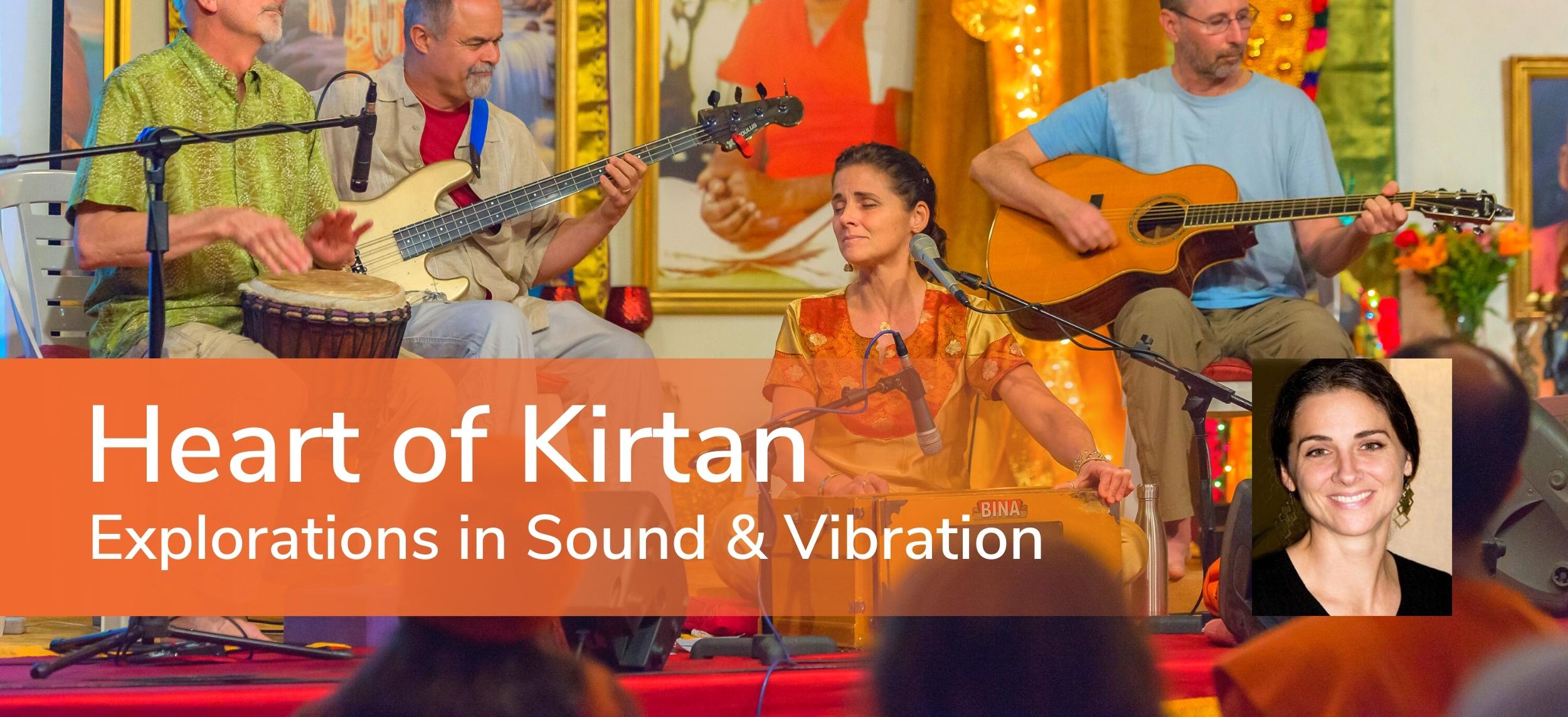
Heart of Kirtan
Explorations in Sound & Vibration
The ancient mantras of India are designed to lead us into deep contemplation and meditation, reconnecting us to the powerful divine presence within. Journey into your own heart with Ragani and her band, as they share the timeless practice of kirtan — and share the transformational effects of sound and vibration.
When we open the heart to divine love, the body and mind are receptive to healing, clarity, and deep peace. Through chanting, we can relax the mind and access a joyful meditative state. Lovers of music and prayer will soak up the vibrations of this powerful practice. Join us — dive into your heart and sing!
Offered as 3 satsangs and 2 workshops (subject to change)
What you’ll learn:
- How to release emotions through chanting
- How to foster concentration and create one-pointedness in the mind
- Stress management through devotional singing
- Increasing positive mood, feelings of relaxation and focused attention
- Promote internal self-healing on spiritual, mental, physical, and intellectual levels with communal and individual chanting practices
What is kirtan?
What is kirtan? Kirtan is derived from the Sanskrit root meaning to call, recite, praise, or glorify. Put simply, it is the act of praising and glorifying some form of divinity. Kirtan involves joyous chanting often performed in a community environment with the accompaniment of instruments such as the harmonium, tabla, and cymbals.
The resurgence of kirtan in the 20th century in the East coincided with a renewed zeal or focus being placed on Bhakti yoga, the yoga of self-surrender and devotion. Swami Sivananda, one of India’s modern sages, did much to reignite the fire of kirtan in India by going from town to town and vigorously leading the entire town’s population into chants that lasted days. Since the mid-20th century, kirtan and the chanting of mantras has found its way to the West. Many find the chanting of mantras appealing because it doesn’t require intense focus and is often done in a collective environment that is supportive and uplifting.
What are the benefits of kirtan?
Chanting mantra has been shown to reduce anxiety, depression, dependencies and many mental ailments. The Alzheimer’s Research & Prevention Foundation recommends the chant Saa Taa Naa Maa for improving memory, developing greater attention, concentration, and focus, and bettering the mood. Other research studies also showcase the benefit of chanting for chronic pain conditions.
The practice of kirtan or chanting mantra regularly has been shown to bring our bodies back into balance, promoting holistic wellbeing: mental, intellectual, physical, emotional, and spiritual. Chanting helps us regulate our sleep, energy input and output, and, thanks to the stimulation of the vagus nerve, the “rest and digest” response of our bodies which is also responsible for regulating breathing, heart rate, muscles, digestion, circulation, and even the vocal cords. Simply put, chanting helps slow down the heart rate, lower blood pressure, relax different muscles and produce slow, regular, and deep respiration.

Ragani is an award-winning producer and recording artist who leads Milwaukee’s renowned Kirtan with Ragani, one of the largest ongoing independent kirtan scenes in the US. At age eight, Ragani met the yoga master Swami Rama, who personally trained her in yogic sciences, meditation, and Eastern music. For more than 30 years, she has led kirtan events worldwide, while also composing music for film and television.
Ragani was named as one of “100 Milwaukeeans You Need to Know” and has been featured in videos, books, and magazines, including Recording Magazine, the award-winning book Yoga: Mastering the Basics, and other national and international publications.
Let's Stay In Touch
Join our email list to learn more about our in-person and online programs, courses, and free events.







